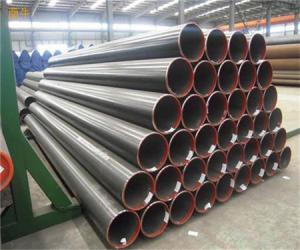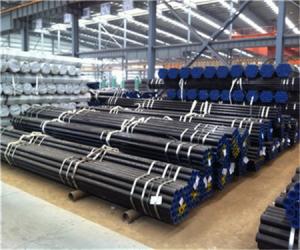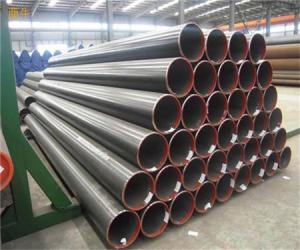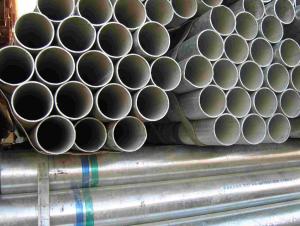Stainless Steel Welded Pipe mechanical Pipe A554/DIN/EN10296-2/ JIS G3446/GB/T 12770
- Loading Port:
- Tianjin
- Payment Terms:
- TT or LC
- Min Order Qty:
- 20 m.t.
- Supply Capability:
- 5000 m.t./month
OKorder Service Pledge
OKorder Financial Service
You Might Also Like
1、Structure of Stainless Steel Welded Pipe mechanical Pipe ASTM A554/DIN/EN10296-2/ JIS G3446/GB/T 12770 Description:
Stainless steel welded pipe is actually a cover term, covering a wide range of alloy and making them suitable for different attributes that are used in a very wide and large numbers of different industries. Stainless steel pipe is resistant to erosion, highly flexible, powerful, easy to use, and can be done in distinct approaches, which means that more and more stainless steel was used as a construction material for large-scale, high impact buildings. It can be molded, rolling, and it can create amazing shapes to make it perfect, It is used as experimental buildings. Lightweight traits of hard welded steel pipe makes it perfect for things used in the construction of off shore oil and gas platforms. Crude oil is a corrosive substance and it is positive in the construction of the new drilling platform that uses high alloy, super austenitic welded steel pipe.
2、Main Features of Stainless Steel Welded Pipe mechanical Pipe ASTM A554/DIN/EN10296-2/ JIS G3446/GB/T 12770:
• High manufacturing accuracy
• High strength
• Small inertia resistance
• Strong heat dissipation ability
• Good visual effect
•Reasonable price
3、Stainless Steel Welded Pipe mechanical Pipe ASTM A554/DIN/EN10296-2/ JIS G3446/GB/T 12770 Images:
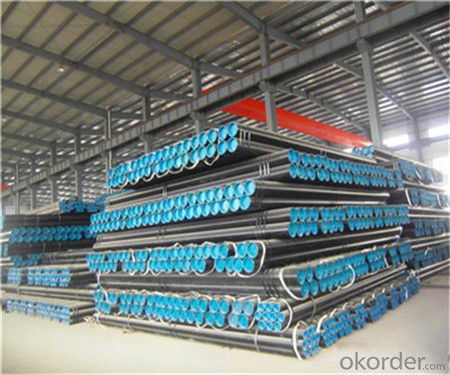
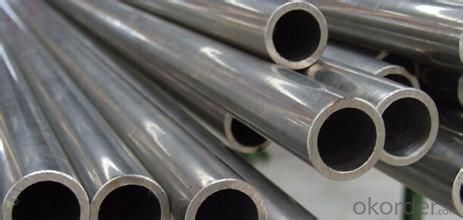
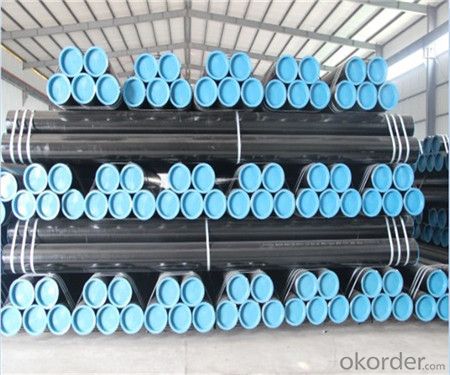
4、Stainless Steel Welded Pipe mechanical Pipe ASTM A554/DIN/EN10296-2/ JIS G3446/GB/T 12770 Specification:
Size:
| OD(mm) | WT(mm) | |||||||||||||
| 0.5 | 0.6 | 0.7 | 0.8 | 0.9 | 1 | 1.2 | 1.5 | 2 | 2.5 | 3 | 4 | 5 | ||
| 9.5 | ||||||||||||||
| 12 | ||||||||||||||
| 1/2' | 12.7 | |||||||||||||
| 13 | ||||||||||||||
| 14 | ||||||||||||||
| 5/8' | 15.9 | |||||||||||||
| 3/8' | 19.1 | |||||||||||||
| 7/8' | 22.2 | |||||||||||||
| 1' | 25.4 | |||||||||||||
| 1-1/8' | 28.6 | |||||||||||||
| 1-1/4' | 31.8 | |||||||||||||
| 1-1/2' | 38.1 | |||||||||||||
| 40 | ||||||||||||||
| 45 | ||||||||||||||
| 2' | 50.8 | |||||||||||||
| 52 | ||||||||||||||
| 2-1/4' | 57.15 | |||||||||||||
| 2-3/8' | 60.3 | |||||||||||||
| 2-1/2' | 63.5 | |||||||||||||
| 70 | ||||||||||||||
| 3' | 76.2 | |||||||||||||
| 85 | ||||||||||||||
| 3-1/2' | 88.9 | |||||||||||||
| 4' | 101.6 | |||||||||||||
| 4-1/8' | 104.78 | |||||||||||||
| 4-1/4' | 107.95 | |||||||||||||
| 4-1/2' | 114.3 | |||||||||||||
| 5-1/4' | 133.35 | |||||||||||||
| 6-1/4' | 158.75 | |||||||||||||
| 8-5/8' | 219.08 | |||||||||||||
Tolerance:
| Standard | OD(mm) | WT(mm) | Tolerance of OD(mm) | Tolerance of WT(mm) | Tolerance of Length(mm) |
| ASTM A554 | ≤12.7 | 0.51~1.24 | ±0.10 | ±10.00%T (±10.00% of nominal wall thickness) | +4.08 -0 |
| >12.7~25.4 | 0.51~1.65 | ±0.13 | |||
| >1.65~3.4 | ±0.25 | ||||
| >25.4~38.1 | 0.64~1.65 | ±0.20 | |||
| >1.65~3.40 | ±0.25 | ||||
| >38.1~50.8 | 0.64~1.24 | ±0.25 | |||
| >1.24~2.11 | ±0.28 | ||||
| >50.8~63.5 | >2.11~3.78 | ±0.30 | |||
| 0.81~1.65 | ±0.30 | ||||
| >1.65~2.77 | ±0.33 | ||||
| >63.5~88.9 | >2.77~4.19 | ±0.36 | |||
| 0.81~4.19 | ±0.36 | ||||
| >88.9~127.0 | 0.89~4.19 | ±0.51 | |||
| >4.19 | ±0.64 | ||||
| >127.0~190.5 | 1.24~6.35 | ±0.64 | |||
| >6.35 | ±0.76 | ||||
| GB/T12770 | <25 | ±0.15 | Clod Rolled ≤0.50 ±0.05 >0.50~1.00 ±0.11 >1.00~2.00 ±0.17 >2.00~3.00 ±7.00%S >3.00 ±10.0%S Hot Rolled ±10.00%S | +20.00 -0 | |
| ≥25~40 | ±0.18 | ||||
| ≥40~50 | ±0.20 | ||||
| ≥50~60 | ±0.23 | ||||
| ≥60~70 | ±0.30 | ||||
| ≥70~80 | ±0.30 | ||||
| ≥80~90 | ±0.30 | ||||
| ≥90~100 | ±0.40 | ||||
| ≥100~200 | ±0.50%D | ||||
| ≥200 | To BeAgreed | ||||
| JIS G3446 | <50 | ±0.25 | <3.00 ±0.30 | +50 -0 | |
| ≥50 | ±0.5% | ≥3.00 ±10.00% |
5、FAQ of Stainless Steel Welded Pipe mechanical Pipe ASTM A554/DIN/EN10296-2/ JIS G3446/GB/T 12770:
①How is the quality of your products?
Our products are manufactured strictly according to national and internaional standard, and we take a test on every pipe before delivered out. If you want see our quality certifications and all kinds of testing report, please just ask us for it.
Guaranteed: If products’ quality don’t accord to discription as we give or the promise before you place order, we promise 100% refund.
②How about price?
Yes, we are factory and be able to give you lowest price below market one, and we have a policy that “ for saving time and absolutely honest business attitude, we quote as lowest as possible for any customer, and discount can be given according to quantity”,if you like bargain and factory price is not low enough as you think, just don’t waste your time.Please trust the quotation we would give you, it is professional one.
③Why should you chose us?
Chose happens because of quality, then price, We can give you both.Additionally, we can also offer professional products inquiry, products knowledge train(for agents), smooth goods delivery, exellent customer solution proposals.Our service formula: good quality+good price+good service=customer’s trust
SGS test is available, customer inspection before shipping is welcome, third party inspection is no problem.
- Q:What are the different types of steel pipe connections?
- There are several types of steel pipe connections, including threaded connections, welded connections, flanged connections, grooved connections, and compression connections.
- Q:Can steel pipes be used for brewery installations?
- Yes, steel pipes can be used for brewery installations. Steel pipes are often used in breweries for various applications such as transferring fluids, connecting equipment, and creating plumbing systems. Steel pipes are known for their durability, strength, and resistance to corrosion, which makes them suitable for handling the harsh conditions and high-pressure environments typically found in brewery installations. Additionally, steel pipes can be welded together, allowing for seamless connections, ensuring a reliable and leak-free operation. However, it is important to ensure that the steel pipes used in brewery installations meet the necessary standards and regulations to ensure the safety and quality of the beer production process.
- Q:What is the role of steel pipes in the construction of bridges?
- Steel pipes play a vital role in the construction of bridges as they are used for various purposes such as providing structural support, carrying water or gas, and facilitating the transportation of electrical and communication cables. Their strength, durability, and ability to withstand heavy loads make them an essential component in bridge construction, ensuring the stability and longevity of the structure.
- Q:How do you inspect steel pipes for defects?
- There are several methods to inspect steel pipes for defects. One common approach is visual inspection, where trained professionals examine the surface of the pipes for visible defects such as cracks, corrosion, or deformities. Another method is ultrasonic testing, which involves using high-frequency sound waves to detect internal defects like wall thickness variations or cracks. Magnetic particle inspection is also commonly used, where the pipes are magnetized, and magnetic particles are applied to reveal surface defects. X-ray and radiographic inspections can be employed to detect internal defects as well. Ultimately, a combination of these methods is often utilized to ensure thorough inspection and identification of any defects in steel pipes.
- Q:Can steel pipes be used for drainage systems?
- Yes, steel pipes can be used for drainage systems. Steel pipes are strong, durable, and resistant to corrosion, making them suitable for carrying and directing wastewater. Additionally, their smooth interior surface allows for efficient water flow, making them a reliable choice for drainage applications.
- Q:Can steel pipes withstand high temperatures?
- Yes, steel pipes can withstand high temperatures as they have a high melting point and excellent heat resistance properties, making them suitable for various industrial applications involving high temperature environments.
- Q:What is the weight of a steel pipe?
- The weight of a steel pipe can vary depending on its dimensions and thickness.
- Q:How are steel pipes used in the manufacturing of aerospace components?
- Steel pipes are used in the manufacturing of aerospace components for various purposes such as supporting structures, fuel systems, hydraulic and pneumatic systems, and exhaust systems. They provide strength, durability, and resistance to extreme temperatures and pressure, making them suitable for critical applications in the aerospace industry.
- Q:How are steel pipes inspected for quality control?
- Steel pipes are inspected for quality control through various methods such as visual examination, dimensional checks, non-destructive testing (NDT) techniques like ultrasonic testing, magnetic particle testing, and hydrostatic testing to ensure their structural integrity and adherence to specified standards.
- Q:What is the impact toughness of steel pipes?
- The ability of steel pipes to withstand sudden or high-velocity impacts without fracturing or breaking is referred to as their impact toughness. This property measures the material's resistance to cracking when subjected to dynamic loading conditions. The impact toughness of steel pipes is highly significant as it determines their capacity to endure accidental impacts or external forces during transportation, installation, and operation. To evaluate the impact toughness of steel pipes, standardized tests such as the Charpy V-notch test or the Izod test are commonly utilized. These tests involve striking a notched sample of the steel pipe with a pendulum or a falling weight and measuring the amount of energy absorbed by the material until it fractures. The impact toughness is then calculated based on this energy absorption. A high impact toughness is desirable in steel pipes as it signifies a greater ability to absorb energy and resist fracture, making them more resilient to sudden impacts or loading conditions. This characteristic is particularly crucial in applications where steel pipes are exposed to high-stress environments, such as in oil and gas pipelines, automotive components, or structural applications. Several factors can influence the impact toughness of steel pipes, including their chemical composition, heat treatment, and microstructure. For instance, alloying elements like manganese, chromium, and nickel can enhance the impact toughness by promoting the formation of fine-grained microstructures and preventing crack propagation. Similarly, appropriate heat treatment processes like quenching and tempering can optimize the material's microstructure and mechanical properties, thereby improving its impact toughness. In conclusion, the impact toughness of steel pipes is a vital property that determines their ability to withstand sudden or high-velocity impacts. It is evaluated through standardized tests and can be influenced by factors such as chemical composition, heat treatment, and microstructure. A high impact toughness is desirable in steel pipes to ensure their structural integrity and resistance to fracture when subjected to dynamic loading conditions.
1. Manufacturer Overview |
|
|---|---|
| Location | |
| Year Established | |
| Annual Output Value | |
| Main Markets | |
| Company Certifications | |
2. Manufacturer Certificates |
|
|---|---|
| a) Certification Name | |
| Range | |
| Reference | |
| Validity Period | |
3. Manufacturer Capability |
|
|---|---|
| a)Trade Capacity | |
| Nearest Port | |
| Export Percentage | |
| No.of Employees in Trade Department | |
| Language Spoken: | |
| b)Factory Information | |
| Factory Size: | |
| No. of Production Lines | |
| Contract Manufacturing | |
| Product Price Range | |
Send your message to us
Stainless Steel Welded Pipe mechanical Pipe A554/DIN/EN10296-2/ JIS G3446/GB/T 12770
- Loading Port:
- Tianjin
- Payment Terms:
- TT or LC
- Min Order Qty:
- 20 m.t.
- Supply Capability:
- 5000 m.t./month
OKorder Service Pledge
OKorder Financial Service
Similar products
New products
Hot products
Hot Searches
Related keywords
